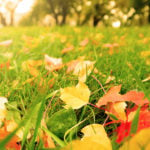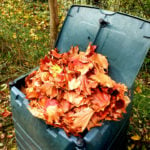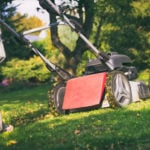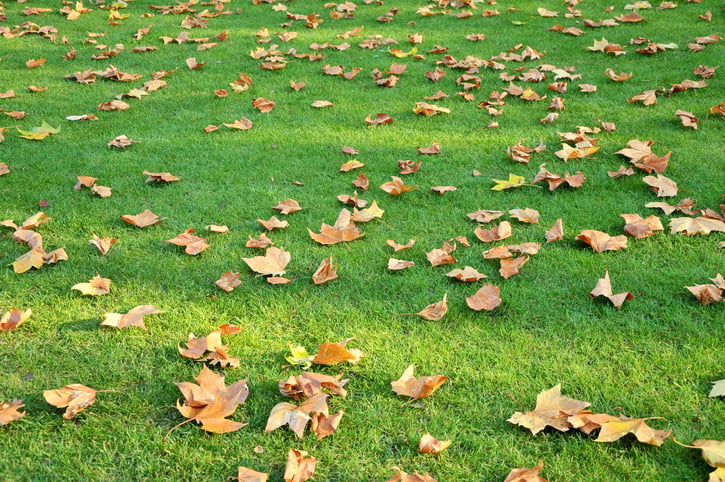If you’re asking yourself “Are leaves good for grass?” chances are, you don’t feel like raking them. The short answer to the question is “Yes.” Leaves are good for your grass, but you probably shouldn’t just ditch clearing them altogether.
Leaves will decompose, but if you leave them on your lawn and they begin to pile up, they can actually do more harm than good. That’s because when they get wet (from rain or even snow) wet leaves smother and kill the grass. But there are a number of different ways to approach your leaf harvest. And depending on your particular situation, it doesn’t always involve raking.
So, let’s take a look at why you should avoid raking leaves and talk about a couple of alternatives (composting and mulching) that will help your lawn to thrive.
Why Mulch Or Compost Leaves?
You should compost or mulch your leaf litter to keep them out of landfills. Michigan law requires all yard waste to be composted – it may not be disposed of in a regular landfill. This started in 1995 because of the many problems caused by yard clippings in landfills. This led to the banning of yard waste from Michigan landfills. 
Why? According to EPA data, yard trimmings, which include leaves, can create as much as 34 million tons of waste each year, which is about 13% of all waste generated. The majority of it comes from composted or mulched in-state programs, but according to the EPA, as much as 11 million tons can still end up in landfills. This accounts for just under 8% of all waste in landfills.
Try Composting
Composting involves scooping leaves into a pile or containing them in a bin and leaving them to naturally decompose.
It provides rich fertilizer for gardens and landscape plants. You can buy Bins or easily make one out of low-cost materials. You can add veggie scraps, coffee grounds, and eggshells, which also helps to cut down on your kitchen waste. Just don’t add items like meat scraps that can smell bad and attract pests.
You can learn more about composting with this handy info sheet.
Mulching
If a compost pile isn’t ideal—try this. You can also use a lawnmower to shred leaves and compost them in a place where they will fertilize the grass. All you do is roll your mulching mower over the fallen leaves. Dried leaves are easier to mulch than wet ones, but mulching leaves (and your grass) and leaving them to decompose can become an important part of your lawn care regimen.
Mulched leaves keep the soil warmer in winter and cooler in summer. The nutrients provided by mulching also reduce the amount and expense of fertilizer needed to achieve green-up in the spring. You can also mulch perennial flower beds with shredded leaves or till them right into garden soil.
And if that’s not enough, research was done at Michigan State University actually shows that leaving the leaves on your yard in such a manner not only does your lawn no harm, but it can actually suppress weed growth.
Let Lush Lawn Help
The Lush Lawn Fall Lawn Care and Restoration package will provide your grass with all of the protection it needs to survive the winter and thrive come spring. Contact us today.
